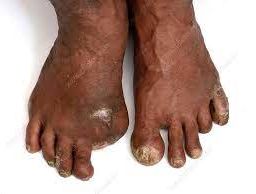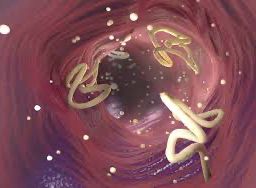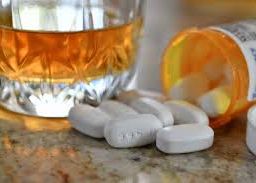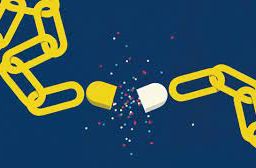
Common STD Signs and Symptoms You Should Know

Sexual health is an integral part of overall well-being, and being proactive about it is crucial to maintaining a healthy and fulfilling life. Sexually transmitted diseases (STDs) are more common than we may think, and they can are a serious health concern that can have serious consequences if left untreated. Many individuals who are infected with an STD may not even be aware of it, as symptoms can be mild or nonexistent. Often, STDs present with subtle or no symptoms, making regular testing essential to identify and treat infections early. In this post, we will discuss some signs that indicate you may need to get tested for an STD. Getting tested is a responsible decision that not only protects your health but also promotes a safer sexual environment for everyone. In this post, we will discuss the signs that indicate you should consider getting tested for an STD.
Signs You Need to Get Tested for an STD

1. Unexplained Genital Discharge or Odor
Experiencing symptoms such as itching, burning sensations, unusual discharge from the genitals, or pain during urination can be signs of an STD. Even if the symptoms appear mild, it’s crucial to get tested promptly. One of the most common signs of an STD is the presence of unusual genital discharge or a foul odor. Both men and women may experience this symptom, which can vary in color, consistency, and smell depending on the specific infection. For instance, gonorrhea and chlamydia often cause a yellowish or greenish discharge, while trichomoniasis may result in a frothy discharge with a strong odor. If you notice any changes in your genital discharge that are not typical for you, it is essential to seek medical attention and get tested.
In addition to discharge, some STDs can cause an unpleasant odor. Bacterial vaginosis, for example, can lead to a fishy smell in women. It is important to remember that not all genital discharges or odors are indicative of an STD, as they can also be caused by other factors such as poor hygiene or hormonal changes. However, if you are experiencing these symptoms along with other signs mentioned in this post, it is advisable to consult a healthcare professional for further evaluation.

2. Pain or Discomfort During Urination
Experiencing pain or discomfort during urination can be a sign of various STDs, including gonorrhea, chlamydia, and genital herpes. These infections can cause inflammation and irritation in the urinary tract, leading to a burning or stinging sensation when passing urine. In some cases, individuals may also notice blood in their urine.
It is important to note that urinary discomfort can also be caused by other factors such as urinary tract infections or kidney stones. However, if you have engaged in unprotected sexual activity or suspect you may have been exposed to an STD, it is crucial to get tested to rule out any potential infections.

3. Genital Sores, Bumps, or Rashes
The presence of genital sores, bumps, or rashes is another sign that you should consider getting tested for an STD. These symptoms can be caused by various infections, including herpes, syphilis, and human papillomavirus (HPV). Genital herpes typically presents as painful blisters or sores that can appear on the genitals, buttocks, or thighs. Syphilis can cause painless sores called chancres, which may appear on the genitals, anus, or mouth. HPV can lead to genital warts, which can be small, flat, or cauliflower-like in appearance.
It is important to remember that not all genital sores or rashes are caused by STDs. Other factors such as allergic reactions, skin conditions, or injuries can also lead to similar symptoms. However, if you notice any unusual growths or lesions in your genital area, it is advisable to consult a healthcare professional for proper evaluation and testing.
4. Flu-like Symptoms
Some STDs can cause flu-like symptoms shortly after infection. These symptoms may include fever, fatigue, body aches, swollen lymph nodes, and sore throat. For instance, individuals infected with HIV may experience flu-like symptoms during the early stages of the infection. Other STDs, such as syphilis and gonorrhea, can also cause similar symptoms.
It is important to note that flu-like symptoms can be caused by various other conditions, such as the common cold or seasonal flu. However, if you have engaged in high-risk sexual behavior or suspect you may have been exposed to an STD, it is crucial to get tested to rule out any potential infections.
5. Unprotected Sex
If you’ve had sexual contact without using a barrier method like condoms or dental dams, you may be at risk for STDs. It is therefore essential to get tested regularly. Unprotected sex increases the risk of contracting or transmitting STDs significantly.

6. Multiple Sexual Partners
Having multiple sexual partners can increase your risk of exposure to STDs. Each new sexual encounter introduces the potential for infection, making regular testing vital if you have more than one partner. Regardless of your relationship status, regular testing is essential if you’re sexually active with more than one person.
7. Partner’s STD Status
If your sexual partner discloses that they have been diagnosed with an STD, it’s crucial to get tested yourself. Understanding your own status allows you to seek treatment if needed and take steps to prevent transmission to others. Prompt testing can help you receive treatment if necessary and prevent further spread.
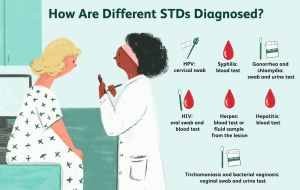
8. Routine Testing
Regular STD testing should be a part of your sexual health routine, especially if you are sexually active. Even if you feel healthy and have no apparent symptoms, routine testing helps detect infections early on.
9. New Sexual Relationship
When starting a new sexual relationship, it’s essential to prioritize open communication about sexual health. Getting tested together can build trust and foster a responsible approach to maintaining your well-being.

10. Previous STD History
If you’ve had an STD in the past, you may be at a higher risk of contracting it again. Regular testing helps monitor your health and ensures any potential recurrence is promptly treated.
11. High-Risk Demographics
Certain groups, such as men who have sex with men, individuals with multiple partners, or those who use intravenous drugs, are at higher risk for STDs. If you belong to such demographics, frequent testing is especially crucial.
12. Pregnancy or Planning to Conceive
If you are pregnant or considering starting a family, it’s essential to get tested for STDs. Pregnant individuals should undergo STD testing as part of their prenatal care. Some infections can pose serious risks to both the mother and the baby if left untreated.
13. Peace of Mind
Knowing your STD status can bring peace of mind and empower you to make informed decisions about your sexual health. Regular testing reduces anxiety and allows you to enjoy sexual relationships with confidence.

Taking care of your sexual health is a responsible and essential aspect of self-care and should be a priority. Being aware of the signs that indicate the need for STD testing is an essential step in safeguarding your well-being. Regular testing for STDs is essential for maintaining good sexual health. While some individuals may experience obvious symptoms, many STDs can be asymptomatic or present with mild symptoms that are easily overlooked. It is important to consult a healthcare professional and get tested for STDs. Early detection and treatment can help prevent complications and protect both your health and the health of your sexual partners.
If you identify with any of the signs mentioned in this post, it’s time to prioritize STD testing. Remember, getting tested not only protects you but also helps curb the spread of STDs in our communities. Reach out to your healthcare provider or a local clinic to get tested confidentially and take control of your sexual health today. Remember, getting tested is not a judgment; it is a responsible and proactive approach to ensure your health and protect others. Knowledge is power!
Disclaimer: The information provided in this content is for general informational purposes only. It is not intended as medical or healthcare advice, diagnosis, or treatment. Always seek the advice of a qualified healthcare professional with any questions you may have regarding a medical condition or healthcare decisions.




